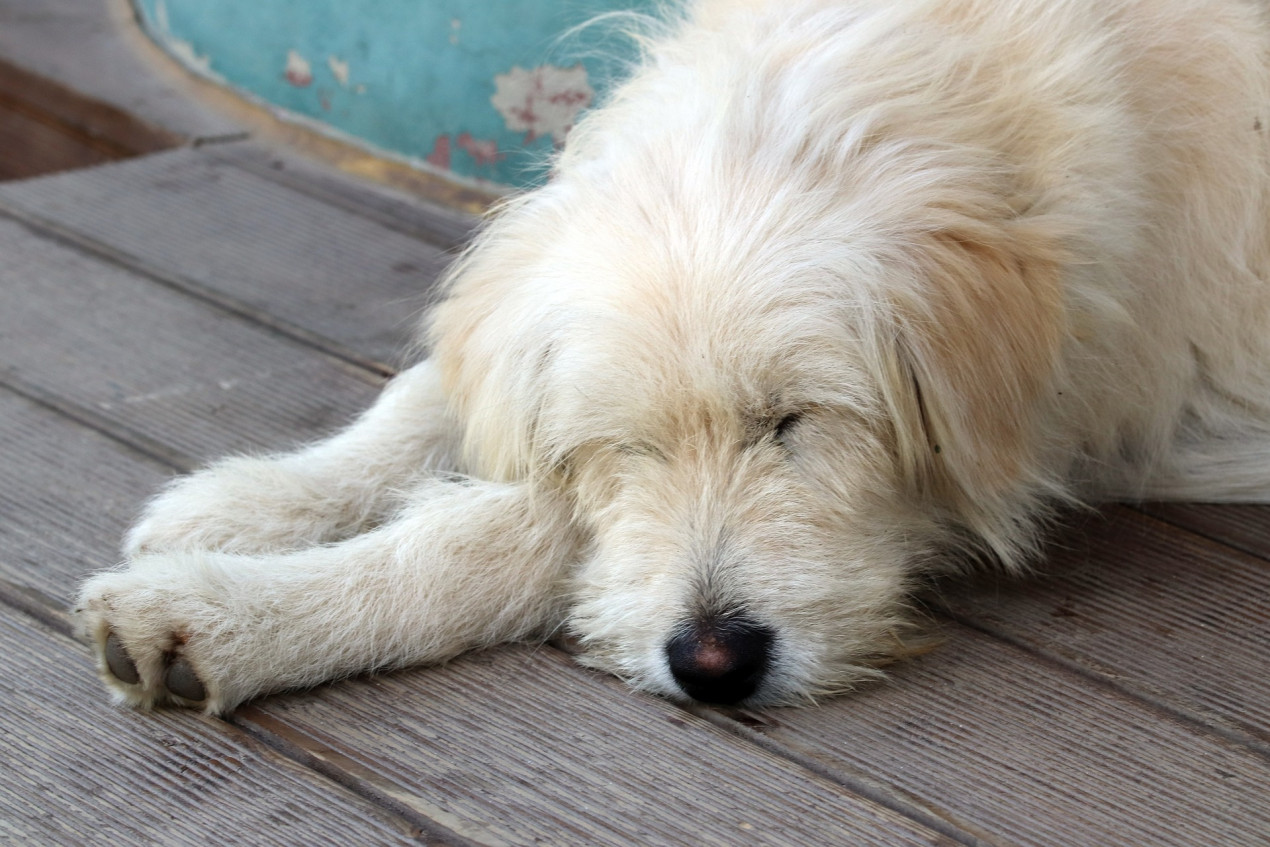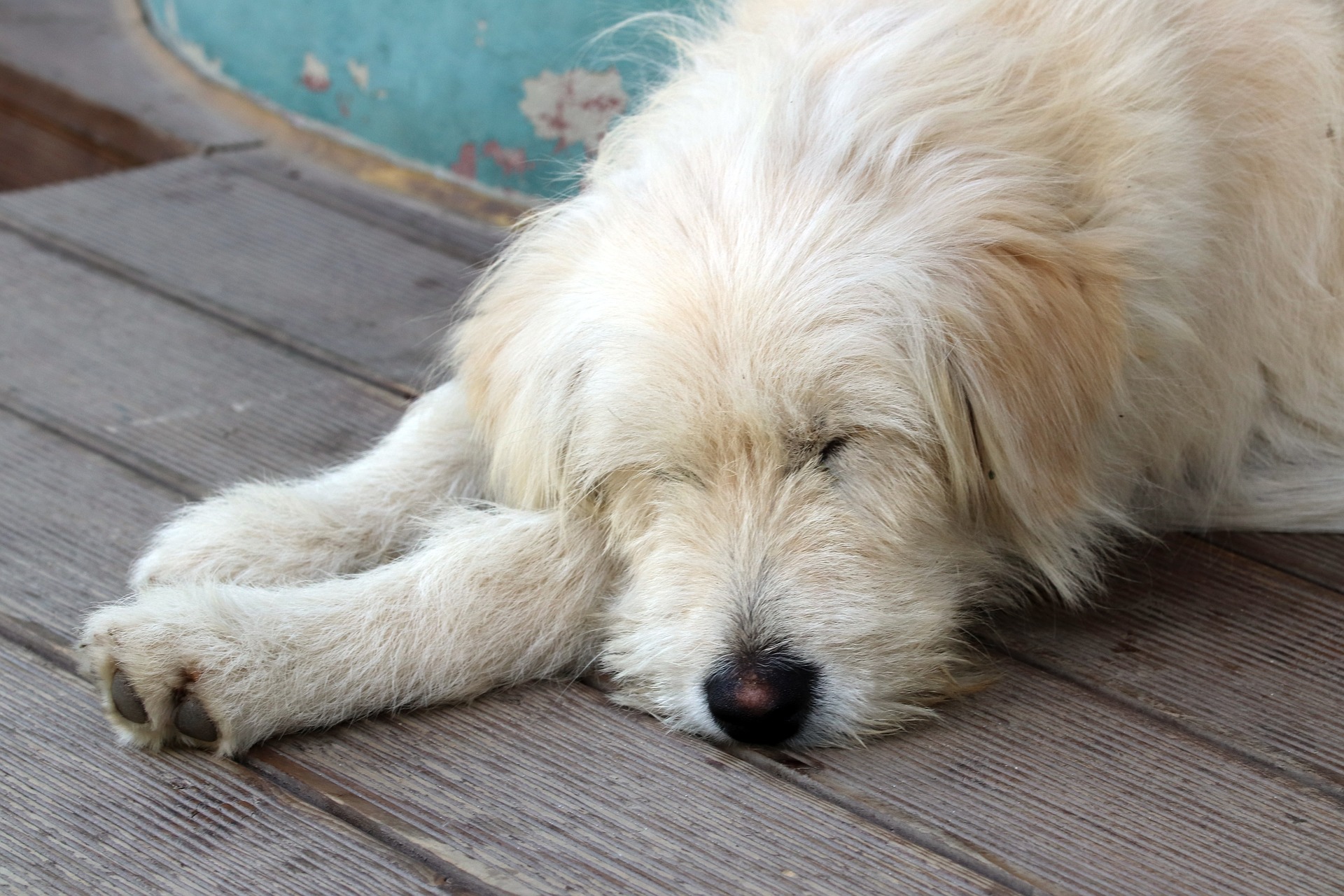Do you need help?

What is colitis in dogs?
Canine colitis is the inflammation of a dog’s large intestine or colon.
The colon absorbs nutrients and helps dogs maintain a good balance of electrolytes, such as sodium, potassium, calcium and magnesium and it is also where stools are stored before they are expelled.
When a dog’s colon is inflamed it hinders its ability to absorb water and nutrients and move faecal matter, which can result in large-bowel diahorrea.
I'm worried my dog has colitis, what should I do?
Colitis in dogs can be caused by a number of different issues, so if you are concerned that your dog’s colitis is a sign of a serious underlying condition, contact your vet, or out of hours, your nearest Vets Now pet emergency clinic for advice.
You might also be interested in:

What causes colitis in dogs?
In many instances, it is not always clear what causes canine colitis, however, one of the main causes is believed to be stress. Other possible causes include bacterial or viral infections or a reaction to medication. Parasites such as roundworms, whipworms, hookworms, and Giardia, or a dietary intolerance or allergy could also be to blame. If a dog ingests an unsuitable item such as food waste or human foods, or a foreign body such as a toy, this can also cause colitis.
Canine colitis can also be a sign of pancreatitis, inflammatory and irritable bowel disease or bowel cancer.
What are the symptoms of dog colitis?
Canine colitis can be acute, meaning it has come on suddenly, or chronic (recurring or lasting for a longer period of time).
The most common sign of colitis is large-bowel diarrhoea and you may see blood or mucus in their stools. They may defecate more frequently than normal and show signs of urgently needing to go, however, they usually aren’t able to do much. They may strain and show signs of pain when trying to poo. Vomiting is another (less common) symptom.
In some cases, dogs with acute colitis may only have diarrhoea and show signs of straining, while dogs suffering from chronic canine colitis may also have loss of appetite, weight loss and lethargy.

Is colitis in dogs fatal?
The prognosis for colitis is typically very good and dogs suffering from colitis due to stress usually recover within three to five days. However, it is possible that the condition will recur in the future.
Dogs with chronic or recurrent colitis may require further tests in order to establish the specific cause of the problem. While chronic colitis is rarely curable, it can often be kept under control with a strict diet and medication.
Are some dogs more susceptible to colitis than others?
Colitis is most common in middle-aged dogs and males and females can be equally affected. There is also some evidence that German Shepherds may have an increased risk.
How do I care for a dog with colitis?
You should seek advice from your vet if your dog has colitis. Ideally, the cause of the colitis will be identified and eliminated in order to resolve the problem. Your vet may recommend that you withhold food for around 24 hours in order to let your dog’s bowel settle feed your dog a high-fibre diet which can help the consistency of the stool, however in some cases, dogs react better to a low-fibre diet, so it’s best to consult a vet before making any changes to your dog’s diet. If you are concerned at all that your dog might need veterinary treatment for colitis, contact your vet or out of hours, your nearest Vets Now, for advice.
Colitis in puppies
Puppies are curious by nature and are likely to pick up things that they shouldn’t, so they are particularly at risk of becoming ill. They are also susceptible to bacteria and viruses that can cause acute colitis. If you are worried that your puppy needs veterinary treatment for colitis, contact your vet or, if it’s out of hours, your nearest Vets Now.
How will my vet diagnose colitis in dogs?
In order to diagnose dog colitis, your vet will usually review your dog’s clinical history and perform a physical examination of your pet. An evaluation of your dog’s faeces may be done to check for underlying causes such as Giardia, and bacteria.
It might be worth collecting a sample of your dog’s faeces to show the vet.
If clinical symptoms persist, you vet may perform more advanced tests such as a colonoscopy in order to rule out other diseases.
How will my vet treat canine colitis?
Treatment for colitis in dogs depends on the specific cause of the condition.
In many cases, the initial step after diagnosing colitis may involve a change in your dog’s diet and anti-inflammatory medication may be given. However, more advanced tests such as a colonoscopy may be required in order to rule out other diseases.
Dogs with chronic or recurrent colitis may require further tests in order to establish the specific cause of the problem.
How can I prevent colitis in dogs?
Due to the number of possible causes of colitis, it’s impossible to identify any surefire methods of preventing colitis. However, one key step is to make sure your dog doesn’t eat anything they shouldn’t. Avoid feeding them human foods that can cause stomach upsets, keep food waste out of their reach and make sure they can’t get their jaws around any common foreign objects, like socks.

